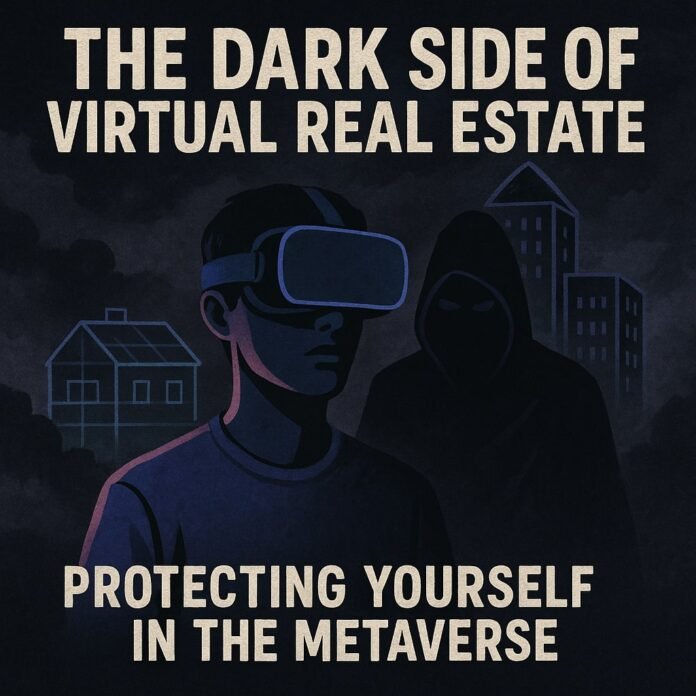By Dr. Pooyan Ghamari, Swiss Economist and Visionary
The metaverse is reshaping how we experience digital life, blurring the lines between reality and virtual worlds. Among its most talked-about features is virtual real estate—the ownership of digital land parcels within immersive platforms. While the promise of creating, trading, and profiting from virtual property excites many, the darker realities lurking beneath this trend deserve careful attention.
In this rapidly evolving digital economy, virtual real estate has become a magnet for scams, fraud, and security pitfalls. As a Swiss economist engaged with emerging tech and financial markets, I aim to shed light on the risks inherent in virtual land investments and share strategies to help you stay protected.
The Metaverse Boom—and Its Shadows
Virtual real estate platforms like Decentraland, The Sandbox, and Cryptovoxels have attracted huge numbers of users and investors eager to claim their slice of the metaverse. Transactions are secured by blockchain technology, making ownership transparent and verifiable in theory. However, the novelty of the market, combined with minimal regulation and high speculation, has created fertile ground for malicious actors.
Scammers exploit gaps in user knowledge, security weaknesses, and market volatility to deceive and defraud.
Common Threats Facing Virtual Landowners
1. Fake Sales and Duplicate Listings
Fraudsters sell virtual properties multiple times or advertise parcels that don’t exist, leading to buyers receiving no valid ownership proof despite payment.
2. Phishing Attacks and Wallet Compromises
Cybercriminals impersonate platform officials or community members, tricking users into revealing private keys or login credentials. Once inside your wallet, they can steal valuable NFTs and cryptocurrency.
3. Price Manipulation and Market Hype
Coordinated groups artificially inflate prices through hype or false information, luring investors to buy at inflated rates before the value crashes.
4. Legal Ambiguity
Unlike traditional real estate, virtual land operates without consistent legal frameworks, making ownership disputes and fraud claims difficult to resolve.
5. Privacy Risks
Social interactions within the metaverse may expose personal data, which can be collected and misused by bad actors.
How to Safeguard Your Virtual Property
1. Use Established Platforms
Stick to reputable metaverse environments with verified marketplaces and transparent governance.
2. Strengthen Wallet Security
Utilize hardware wallets, enable two-factor authentication, and never disclose private keys or seed phrases.
3. Authenticate Every Transaction
Verify NFTs through blockchain explorers before purchase, ensuring the seller is legitimate and the asset is genuine.
4. Avoid Impulsive Decisions
Don’t succumb to pressure tactics or offers promising quick returns. Take time to research and verify.
5. Participate in Community Networks
Engage with official forums and social channels to stay informed about scams and platform updates.
6. Seek Professional Advice
For large-scale investments, consult blockchain experts and legal professionals specializing in digital assets.
Toward a Safer Virtual Real Estate Market
The future will likely bring stronger industry standards, regulatory guidance, and technological tools designed to protect investors and users. Innovations like decentralized identity verification and smarter contracts promise greater transparency and security.
Final Thoughts from Dr. Pooyan Ghamari
Virtual real estate offers incredible possibilities but is not without risks. Success depends on understanding the market’s pitfalls and proactively protecting your digital investments. As the metaverse grows, so must our awareness and security practices.
Treat your virtual assets with the same seriousness and care as physical property. By staying informed, cautious, and engaged, you can enjoy the benefits of the metaverse while minimizing exposure to its darker elements.



